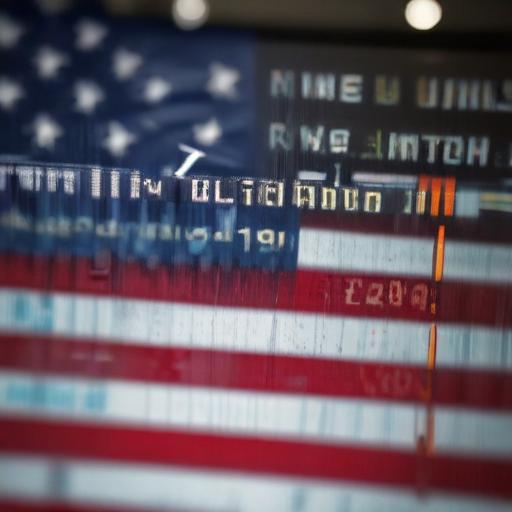Stock futures dropped on Monday following the U.S. announcement that tariffs will take effect on August 1, instead of the previously expected July 9. The Dow Jones Industrial Average futures added a marginal 8 points, while S&P 500 and Nasdaq-100 futures fell by 0.2% and 0.4%, respectively.
In premarket trading, Tesla shares fell nearly 7% after CEO Elon Musk revealed plans to establish a new political party called the “America Party.” This announcement has not resonated well with investors, with some suggesting that Musk’s political ambitions may negatively impact Tesla’s brand and sales.
Encouragingly, Treasury Secretary Scott Bessent mentioned on CNBC that several trade announcements are anticipated within the next 48 hours. During an interview on CNN’s “State of the Union,” he indicated that President Trump would be reaching out to trading partners to expedite negotiations and warned of a “boomerang” effect if progress is not made by the new tariff deadline.
Trump and Commerce Secretary Howard Lutnick confirmed the tariff timeline, with Lutnick emphasizing that the president is currently determining the specific rates. Investors had expected these tariffs to commence this week, following the end of a 90-day pause on previous tariffs set back in April.
Moreover, Trump has raised concerns about an additional 10% tariff on countries cooperating with what he described as “Anti-American policies of BRICS” — a coalition of emerging markets including Brazil, Russia, India, and China. The timing aligns with the recent BRICS meeting in Rio de Janeiro, where discussions have included reducing reliance on the U.S. dollar.
Despite the current uncertainty surrounding trade negotiations, Wall Street recently experienced a successful week, with the S&P 500 and Nasdaq Composite reaching record highs—a sign of investor confidence that severe tariffs may not be implemented as previously indicated in April.
Economic expert Rajeev Sibal noted that trade negotiations typically extend over several years, suggesting that the current discussions may not reflect a complete trade agreement but could still yield positive outcomes.
Concerns exist surrounding the potential volatility in the equity market, yet some analysts remain optimistic that companies will outperform low expectations in the upcoming earnings season, providing a possible surprise in earnings that could bolster the market rally. Tom Lee from Fundstrat Global Advisors expressed confidence in the resiliency of the stock market, referring to the recovery as a “most hated V-shaped rally.”
These developments reflect a complex landscape as markets navigate both political announcements and trade negotiations. Investors will be closely monitoring how these factors unfold in the coming weeks.
